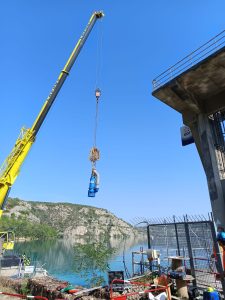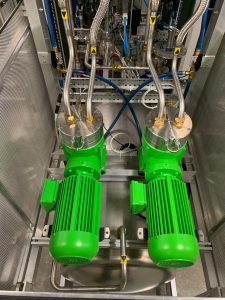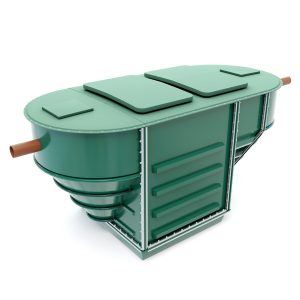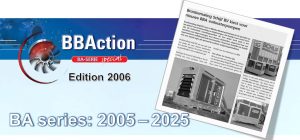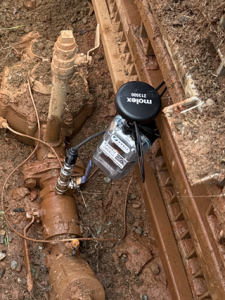Innovative Technology Helps Dairy-giant in Swedish Idyll
Three or four years of waiting for an expansion of the capacity at the municipal sewage treatment plant in Vimmerby, Sweden, made Arla choose a much faster alternative. Now, Grundfos BioBooster cleanses the waste water so efficiently that it can be discharged into the idyllic landscape close to Astrid Lindgren’s native town.
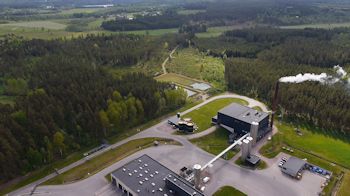
Grundfos
The surroundings from Astrid Lindgren’s marvellous stories have secured Vimmerby a place in many people’s awareness. Less familiar is it, that the writer’s southern Swedish native town is situated in an area characterised by enterprise and companies on the rise. One of the largest companies is Arla Foods’ high tech dairy, which in the meantime ran into a serious problem as it, in 2012, needed to expand its production to satisfy a growing demand.
Waiting time cut short
The problem was that it would take three or four years for the municipal sewage treatment plant to be ready to handle the increasing amount of waste water which would be the result of a heightened activity at the dairy. According to Pär Bragsjö, Facility Manager, Arla was allowed to take matters into their own hands.
"We presented Grundfos with our demands for purity degree of our waste water and we got the answer, that it would be no problem", he remembers.
In November 2012, a contract about delivery of Grundfos BioBooster was signed and already in March 2013, the diary could expand its production and lead waste water through its own, new, innovative sewage works.
"The tremendous time pressure which Arla was under was no problem for us because our solution is constructed by modules. It is therefore very simple to install and already before the installation, we were able to test the entire system thoroughly at our factory in Denmark", explains Søren Nøhr Bak, Segment Director, Industry.
Expectations fulfilled
Waste water from dairies is relatively hard to cleanse but after a year worth of problem-free operations of the new sewage works, the expectations have been more than fulfilled according to Pär Bragsjö. He describes the cleansing results as amazing and at the same time expresses satisfaction with the system being much easier to operate despite its advanced technology.
"The waste water gets even cleaner than anticipated and we can even carry much more water through than promised", he says.
Pär Bragsjö is supported by Georg Stefansson from Dalkia, who takes care of the day-to-day maintenance at the Arla dairy. His job is among other things to control that the waste water complies with the strict environmental requirements.
"We take samples every day to examine the quality of the water and after it has run through Grundfos BioBooster, it is so clean that it can be lead directly out into the environment", he explains.
Sustainable solution
Also the local farmers benefit from the dairy’s sewage works, because the remaining sludge from the cleansing is used as manure on their fields. Grundfos BioBooster thereby fits perfectly with Arla Foods’ slogan “Closer To Nature”, which, according to Pär Bragsjö means that the company always has to consider the environment and the energy consumption.
"Grundfos BioBooster is a very good example because the system has very low energy consumption and only uses natural methods for cleaning the water – not chemicals", he says and adds that it, in addition, is quite cheap having one’s own decentralised sewage treatment plant: "The costs are almost half compared to what they would be if the water were to be cleansed at the municipal sewage treatment plant.
The establishment of the Vimmerby-dairy’s own waste water solution has relieved Vimmerby Energy & Environment Ltd. because it made it unnecessary to expand the municipal sewage treatment plant. Göran Nielsen, VA Manager calls it a good solution, which could also be used in other industries.
Facts:
- The Grundfos BioBooster system in Vimmerby has been designed to cleanse 400 cubic metres of water a day from the dairy’s production of milk powder – a capacity which would suffice cleaning the waste water from 18,000 people.
- The cleansed water now easily meets the local demands for cleansing and can be lead directly out into the nearby stream.
- The innovative technology enables Grundfos to remove all types of bacteria from the waste water in order to use it as technical water, which means that it can be used for field irrigation for example.
Source: Grundfos Holding A/S

